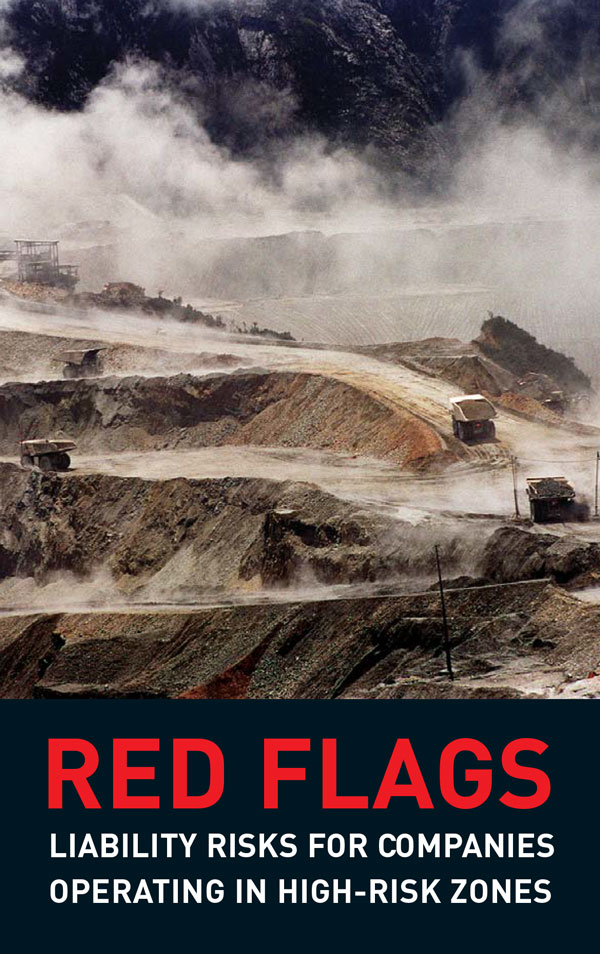The activities identified below are drawn from a review of existing international law and court cases in more than a dozen jurisdictions. Each red flag is hyperlinked to a summary of the relevant laws and a selected case or two. Additional resources for companies, governments, affected communities and researchers can be found here as well.
1. Expelling people from their communities
The threat or use of violence to force people out of their communities can be a crime under international law. A company may face liability if it has gained access to the site on which it operates, where it builds infrastructure, or where it explores for natural resources, through forced displacement.
2. Forcing people to work
Companies using people working against their will through the threat or use of violence may face liability. The use of such labour by a joint venture partner or state security forces may also pose a liability risk.
3. Handling questionable assets
Receiving funds which may have been associated with criminal activities exposes companies and individuals to legal risks. Holding, managing or hiding such funds, including funneling suspicious funds into legitimate financial channels, may result in prosecution and lawsuits.
4. Making illicit payments
Any significant off-the-book financial transactions may create legal liabilities under laws against corruption or bribery. Charges may be brought outside the country where the transaction takes place. Even where corruption is a common occurrence, a liability risk remains.
5. Engaging abusive security forces
The use of disproportionate force by government or private security forces acting on behalf of a company can create liabilities for the company itself. These liabilities may rise even where the actions of the security forces (e.g. killing, beating, abduction, rape) were neither ordered nor intended by the company. Legal risks may be greater where security forces have a history of abusive conduct.
6. Trading goods in violation of international sanctions
A company may be held liable for buying, selling or transporting products, commodities or assets originating from or going to a country, group or individual under international sanctions. The most common embargo is on arms, but increasingly sanctions are imposed on specific commodities, such as diamonds, timber, and on financial assets.
7. Providing the means to kill
Businesses may face liabilities if they provide weapons or dual-use equipment to governments or armed groups who use those products to commit atrocities. This may be the case even where import and export regulations are fully respected.
8. Allowing use of company assets for abuses
Company facilities and equipment used in the commission of international crimes can create liability for the company, even if it did not authorise or intend such use of those assets.
Two former executives of Ford Argentina were convicted in 2018 of complicity in crimes against humanity during the military dictatorship in the 1970s. The two were found guilty of supporting the torture factory employees by the regime, including for their role in allowing a detention center to be set up inside the premises of that factory where workers were interrogated.
9. Financing international crimes
Providing financial resources to those who commit international crimes may result in liability, if those resources substantially contribute to those crimes being committed. The risk of liability increases if the company persists in doing business with the violators, particularly once the violations are common knowledge.
